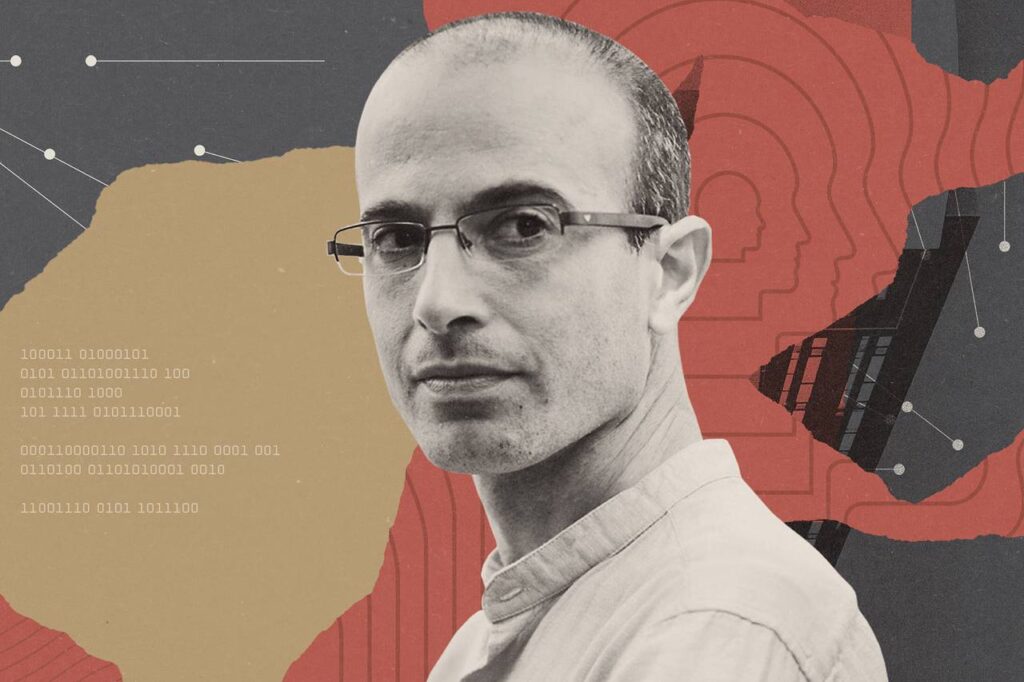Biography of Yuval Noah Harari
Updated: 6 January 24
25
Introduction
Yuval Noah Harari is an influential contemporary historian and writer, known for his thought-provoking books on history, philosophy, and the future of humanity. Born on February 24, 1976, in Israel, Harari gained his PhD from the University of Oxford in 2002 and is currently a lecturer at the Hebrew University of Jerusalem.

Sapiens: A Brief History of Humankind (2011)
Harari first came into the international spotlight with his book “Sapiens: A Brief History of Humankind” (2011). This work, originally written in Hebrew and later translated into multiple languages, offers a sweeping overview of the history of our species.
Harari explores how Homo sapiens prevailed over other species and how our ancestors shaped the world through revolutions in cognitive ability, agriculture, and science. The book stands out for its accessible narrative style and its ability to connect historical events to present-day issues.
Homo Deus: A Brief History of Tomorrow (2016)
Following the success of “Sapiens,” Harari published “Homo Deus: A Brief History of Tomorrow” (2016), which delves into potential future trajectories for humanity, focusing on how technological advancements might redefine life, society, and even what it means to be human.
21 Lessons for the 21st Century (2018)
His third major work, “21 Lessons for the 21st Century” (2018), shifts focus to current global issues. It addresses topics like the rise of nationalism, the challenge of technological disruption, and the search for personal meaning in a rapidly changing world.
Synthesis and Impact
Harari is known for his ability to synthesize vast amounts of information into coherent, engaging narratives. His works often challenge readers to think critically about the past, present, and future, making him a popular figure in public discourse.
Narrative Style and Influence
Harari’s style is characterized by its clarity, directness, and ability to engage a broad audience. He often utilizes storytelling techniques to make complex historical and philosophical concepts more accessible. His influence extends beyond the literary world; he is a sought-after speaker and commentator on global issues.
What is Yuval Noah Harari’s most famous book?
“Sapiens: A Brief History of Humankind” is Harari’s most famous book. It has been widely praised for its insightful and engaging exploration of human history.
What subjects does Yuval Noah Harari primarily focus on in his writings?
Harari primarily focuses on big-picture perspectives on history, the future of humanity, and philosophical inquiries about society, technology, and existence.
Has Yuval Noah Harari written any other notable works besides “Sapiens”?
Yes, Harari is also known for “Homo Deus: A Brief History of Tomorrow” and “21 Lessons for the 21st Century,” both of which have received significant acclaim.
What is the main theme of “Homo Deus”?
“Homo Deus” explores the future of humanity, particularly how technological advancements might transform human life and challenge our understanding of what it means to be human.
How has Yuval Noah Harari’s work influenced public discourse?
Harari’s work has significantly influenced public discourse by encouraging discussions about human history, future technological challenges, and philosophical questions about society and existence. His accessible style makes complex ideas understandable to a wide audience.
Please Write Your Comments